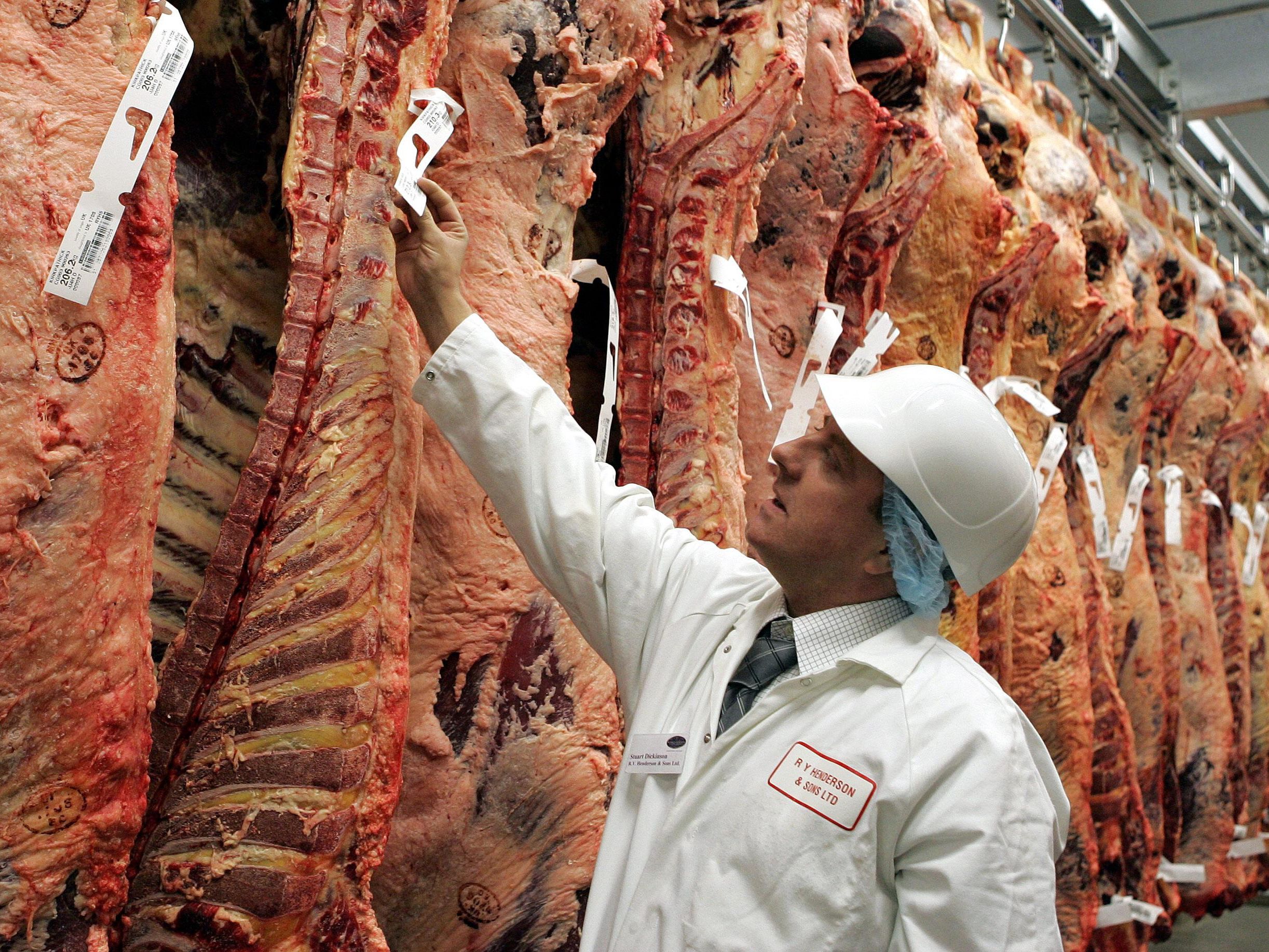EU court rules non-stunned halal and kosher meat cannot be marketed as organic
Some religious ritual slaughter involves slitting animals' throats without first knocking them unconscious

Your support helps us to tell the story
From reproductive rights to climate change to Big Tech, The Independent is on the ground when the story is developing. Whether it's investigating the financials of Elon Musk's pro-Trump PAC or producing our latest documentary, 'The A Word', which shines a light on the American women fighting for reproductive rights, we know how important it is to parse out the facts from the messaging.
At such a critical moment in US history, we need reporters on the ground. Your donation allows us to keep sending journalists to speak to both sides of the story.
The Independent is trusted by Americans across the entire political spectrum. And unlike many other quality news outlets, we choose not to lock Americans out of our reporting and analysis with paywalls. We believe quality journalism should be available to everyone, paid for by those who can afford it.
Your support makes all the difference.Halal and kosher meat cannot be labelled organic if the animal was not stunned before being killed, the EU’s highest court has ruled.
The official EU organic logo must not be used on any meat derived from an animal slaughtered while still conscious, the EU Court of Justice said on Tuesday.
Organic labelling marks out the highest standards in farming welfare, judges ruled.
Stunning animals – often done through electric shocks or through a bolt to the brain – significantly reduces suffering and therefore is integral to organic standards, the judgement concluded.
Contrary to popular belief, most livestock slaughtered in halal abattoirs are stunned before they are killed.
The Food Standards Agency (FSA) estimates about 88% of animals killed through halal methods are stunned beforehand using techniques acceptable in Islamic law.
But a minority of halal food – and all kosher meat – does not involve stunning.
The case was brought to the EU court by a French animal welfare association in 2012, which argued halal beef should not be labelled organic.
The rules on ritual slaughter in both Islam and Judaism are complex. To be truly halal, an animal must first be healthy and then slaughtered by a Muslim by cutting the throat with a sharp knife in a single slash.
The blood must then be fully drained from the carcass. A 2012 FSA report said about 12% of the 940 million cows, sheep, pigs, and poultry birds slaughtered each year in Britain were killed in a halal manner.
It is possible to stun halal animals via electricity which makes the creatures unconscious but not dead before their throats are ritually slit.
However, Jewish kosher slaughter, known as shechita, cannot use pre-killing stunning.
Jewish abattoirs also cut the throat of animals with a sharp blade, which proponents insist causes immediate loss of consciousness and is therefore humane and meets the EU’s requirements for stunning.
The EU ruling does not affect the legality of ritual halal or kosher slaughter, but will make it harder for some ritually-slaughtered meat to be labelled organic.
Longstanding rules create an exception under the need for freedom of religion to EU regulations on killing animals without pre-stunning.
But some EU nations, including Denmark and most recently Belgium, have banned entirely ritual slaughter, a move backed by both animal welfare advocates and right-wing populists.
Join our commenting forum
Join thought-provoking conversations, follow other Independent readers and see their replies
Comments